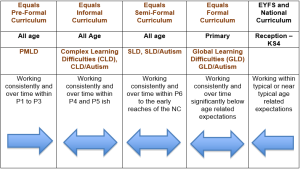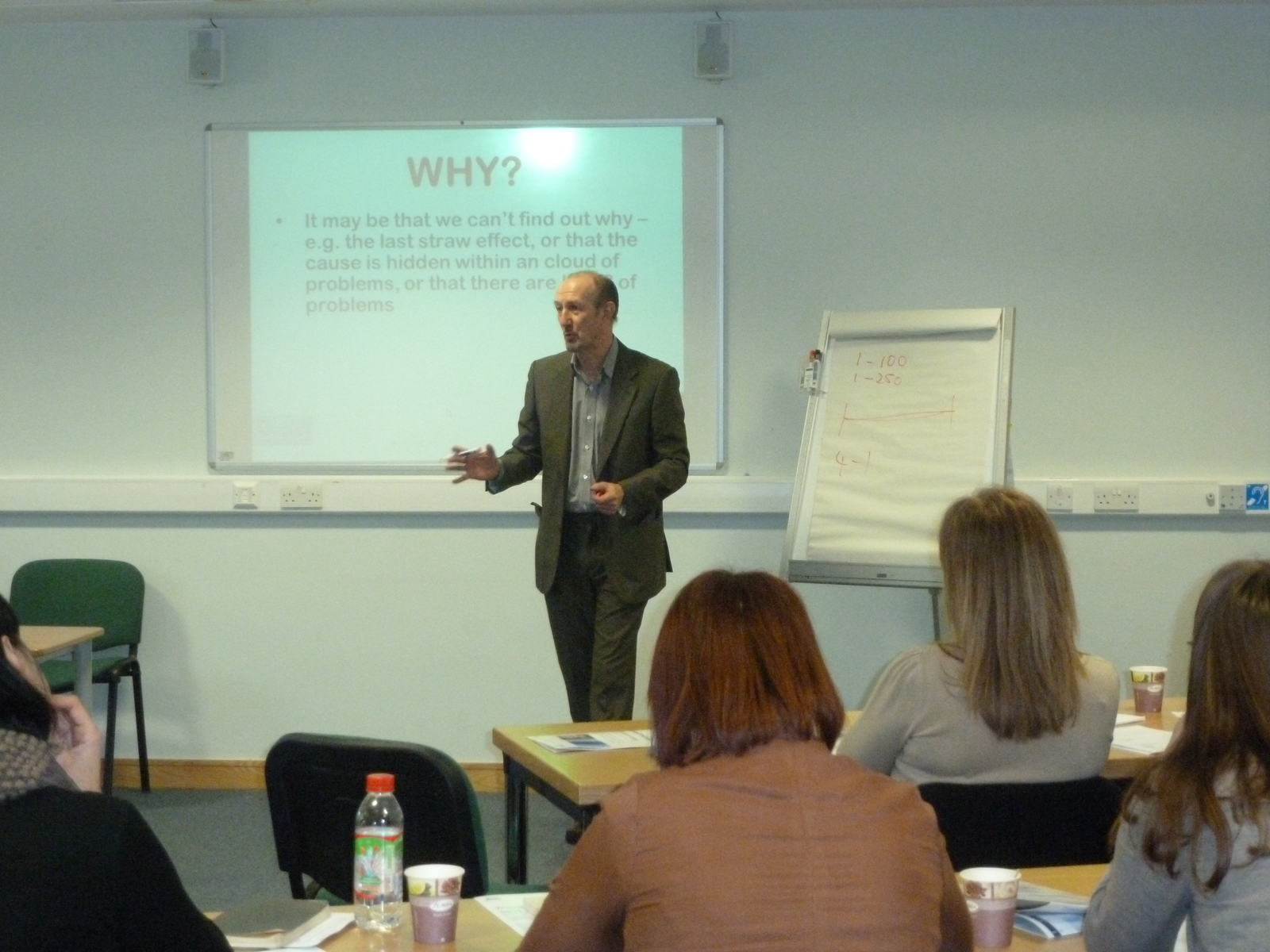Courses
Whole and half day courses for both teachers and teaching assistants
Introducing Curriculum Change. The concept of different (rather than differentiated) curricula for those with profound, complex, severe and/or moderate learning difficulties is attracting considerable interest following the publication of Equals’ multi-tiered curriculum model.
The relationship between curricula in a multi-tiered curriculum approach
Although there are similarities between one curriculum and those adjoining it, each curriculum has been specifically written for the broad grouping of learners noted, and each Curriculum warrants its own day’s initial training. The curricula noted above are not specifically related to England but will be effective for all those with learning difficulties, anywhere in the world.
You can access more information related to these curricula at www.equals.co.uk or email admin@equals.co.uk
Please email peter.imray@hotmail.co.uk for prices related to this training.
In addition, I would be very happy to run specific courses to your staff either in part or as a whole. Some of these might be:
Exploring assessment and progress options
This day looks in detail at demonstrating quantitative progress for those with PMLD through RfL (Routes for Learning) and quantitative progress for those with SLD and MLD through MAPP (Mapping and Assessing Personal Progress). Time will also be allocated to exploring the current statutory assessment requirements of the Engagement Model and the Pre-Key Stage Standards. Demonstrating a clear understanding of progress and providing indicators of educational success may be key to attaining a strong Ofsted grade, and this course gives viable supplementary options to schools who struggle to demonstrate progress.
A Different View of Literacy and Numeracy
This course seeks to (i) broaden our understanding of how those with SLD and PMLD learn, including gaining the acquisition of basic literacy and numeracy skills; (ii) provide the basis for schools’ curriculum development; (iii) equate this with the linear developmental model that applies to neuro-typical learners; (iv) assess the possibilities of teaching English and Mathematics through an individualised developmental model that is non-linear and entirely practical.
Teaching Play and Games in and out of the special needs class
Neuro-typical children learn so many basic social and life skills just through the process of playing co-operatively with other children, whereas such experiences and learning opportunities are very likely to pass children with learning difficulties by, especially if the child has autism. We can however compensate for this loss through promoting and facilitating play, irrespective of the age or developmental level of the child.
Teaching Relationships and Sex Education (SRE) in the special needs class
This course tackles head-on the issues around sexuality and learning difficulties and seeks to give practical advice on both what you should be teaching and how you should be teaching it.
Introduction to Challenging Behaviour in the special needs school
A one-day introductory course looking at simple and practical solutions to challenging behaviour across all age ranges (from 2 to 92) and all levels of ability from profound and multiple learning difficulties to moderate learning difficulties.
Autism and Challenging Behaviour
Looking at simple and practical solutions to resolve challenging behaviours in pupils with autistic spectrum disorders and learning difficulties.
Attention Deficit, Hyperactivity Disorders
Some suggest that ADHD may affect up to 5% of the school population, yet it is a much misunderstood condition that often attracts negative and unhelpful responses. This course seeks to address the balance and offer real and lasting solutions that will benefit pupils, staff and families.
An introduction to Signing
A one-day course for all teachers and TAs wanting to introduce more signing into their classroom, covering practicing stage one signs, your top 50 signs to use every day and great ideas on how best to teach signing to your pupils.
